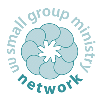As Unitarian Universalists, we covenant to affirm and promote the inherent worth and dignity of every person. The simplest way to do this when interacting with a person with a disability is to remember that a person with a disability is a person first. All people, including those with disabilities, have unique skills, talents, interests.
Some general etiquette tips include:
- Practice the Golden Rule. Think of the person first, not their disability. Relax and be yourself
- Always ask before giving assistance. A person with a disability may not need or want your help
- Think before you speak. Avoid using labels. Always use people first language (see chart below)
- Avoid showing pity or being patronizing. People with disabilities are not victims. Do not use a pet name, such as "honey". Do not speak with someone with a disability as though they were a child
- Focus on ability rather than disability - what a person can do rather than what they cannot do
- Remember that everyone - people with and without disabilities - has the ability to succeed and the ability to make mistakes and learn from them
- Always use positive, people first language that empowers rather than marginalizes.
People First Language Offensive Preferred Birth defect Person who is disabled since birth, born with a congenital disability Cerebral palsied Person who has cerebral palsy Cripple Person who needs mobility assistance Deaf and dumb, deaf mute Person who is deaf and does not speak Deformed Person who has a physical disability Emotionally disturbed Person with an emotional disability Handicapped Person with a disability Hunchbacked Person with a spinal curvature Insane, deranged, deviant Person with a mental illness Midget, dwarf Person who is small in stature Mongoloid Person who has Down Syndrome Normal Typical, non-disabled, able-bodied Retarded Person with a cognitive disability Wheelchair bound, confined to a wheelchair Person who uses a wheelchair
When you interact with someone with a disability, speak directly to them, not to their aides, interpreters, companions.
When you interact with someone with a cognitive disability, speak to the person in clear simple sentences. Give them time to communicate with you.
When you interact with someone who uses a wheelchair, do not push, lean on, move or hold the person's wheelchair. Try to put yourself at eye level - pull up your own chair.
When you interact with someone who is blind or visually impaired, always introduce yourself by name and let him or her know when you are leaving. Offer your arm or elbow if they request assistance but NEVER grab their arm or elbow. If the person has a guide dog, do not pet or distract the dog. The dog is responsible for its owner's safety.
When you interact with someone who is deaf or hearing impaired, remember that the person may have some hearing, may be able to read lips or may use sign language or assistive technology. ASK them how they prefer to communicate
When you interact with someone with a speech impairment, allow them as much time as they need to communicate. Be respectful and avoid trying to finish their sentences
The best way to explore how to support a person with a disability is to speak directly to the individual. A facilitator may begin the conversation as simply as, "I am delighted that you will be part of our covenant group. I wonder if there are any accommodations you might need to participate in the group?" Some things that might come up are a physically accessible location, large print handouts, time to compose thoughts before speaking, seating within the group that allows for greater visual or auditory access, something to do with his/her hands to stay focused on the conversation, a stretch break.
The Job Accommodation Network is a wonderful on-line resource with an A-Z listing of accommodations by disabilities. (http://askjan.org). While primarily designed for workplace accommodations, the simple, practical suggestions may serve as a starting point for identifying how to include a person with a disability in small group ministry or other aspects of congregational life. Another resource is found at www.dhs.state.il.us and is a flyer called "People First: a guide to interacting with people with disabilities". A number of suggestions in this article are drawn from the People First flyer.
In conclusion, relax, be yourself, look forward to making a new friend, focus on what a person can do rather than what they cannot do. Know that we all misspeak and misstep from time to time but learning from these is experiences is what allows all people - with and without disabilities - to grow.







